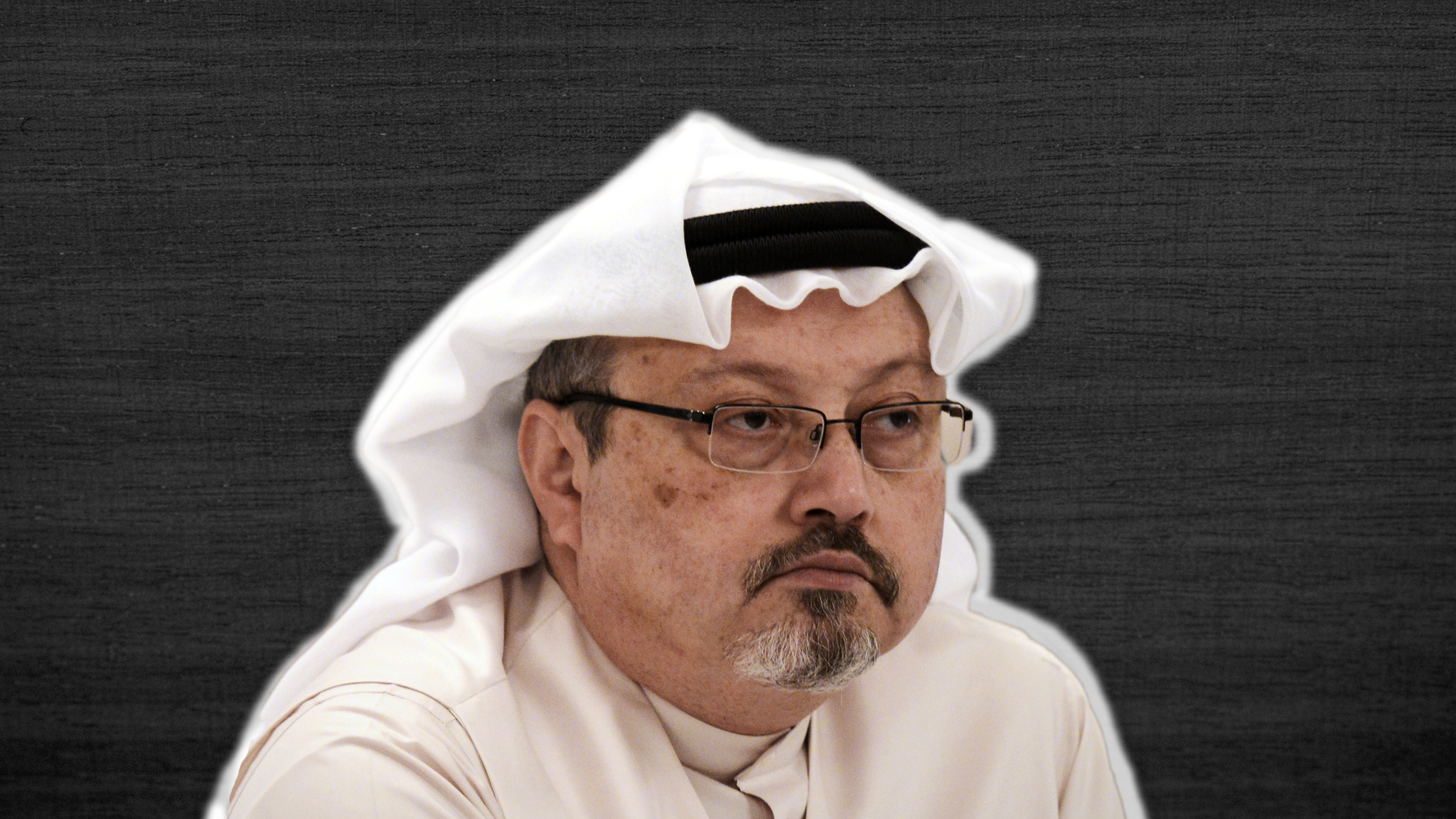Saudi crown prince visits Turkey for first time since Khashoggi murder
- Published
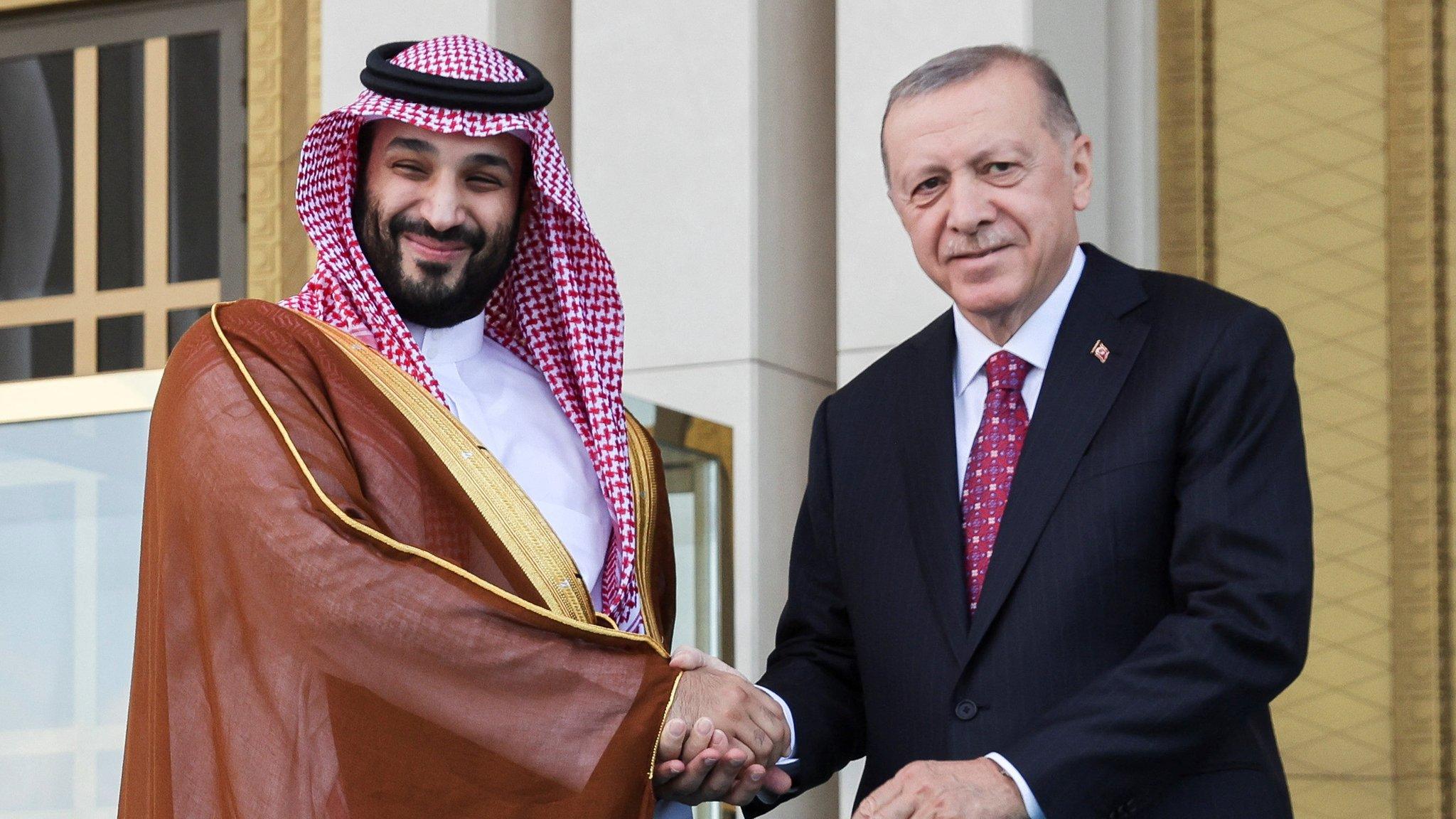
Recep Tayyip Erdogan shook hands with Prince Mohammed as he welcomed him to Ankara
Saudi Arabia's crown prince has visited Turkey for the first time since the 2018 murder of the journalist Jamal Khashoggi in its Istanbul consulate.
President Recep Tayyip Erdogan embraced Mohammed bin Salman before they held talks aimed at repairing a deep rift.
Mr Erdogan once indirectly accused the prince of ordering Saudi agents to kill Khashoggi. He denied any involvement.
Turkey is currently seeking trade, investment and assistance to help it deal with a worsening economic crisis.
It has also worked to improve relations with the United Arab Emirates, Egypt and Israel after years of tensions.
Following their talks, a joint statement said the two men discussed improving relations and investment in sectors from energy to defence, among others.
Prince Mohammed wants to end his international isolation and restore his powerful regional role.
He also visited Jordan and Egypt this week as part of a Middle East tour and next month will meet US President Joe Biden, who promised in 2019 to make Saudi Arabia "the pariah that they are" over Khashoggi's murder.
Khashoggi, a US-based Washington Post columnist and prominent critic of Prince Mohammed, was last seen entering the Istanbul consulate on 2 October 2018, where he had gone to get papers needed to marry his Turkish fiancee, Hatice Cengiz.
A UN investigator concluded he had been "brutally slain" by a 15-strong team of Saudi agents sent from Riyadh, and that his body had been dismembered. She made that judgement after listening to purported audio recordings of conversations inside the consulate made by Turkish intelligence.
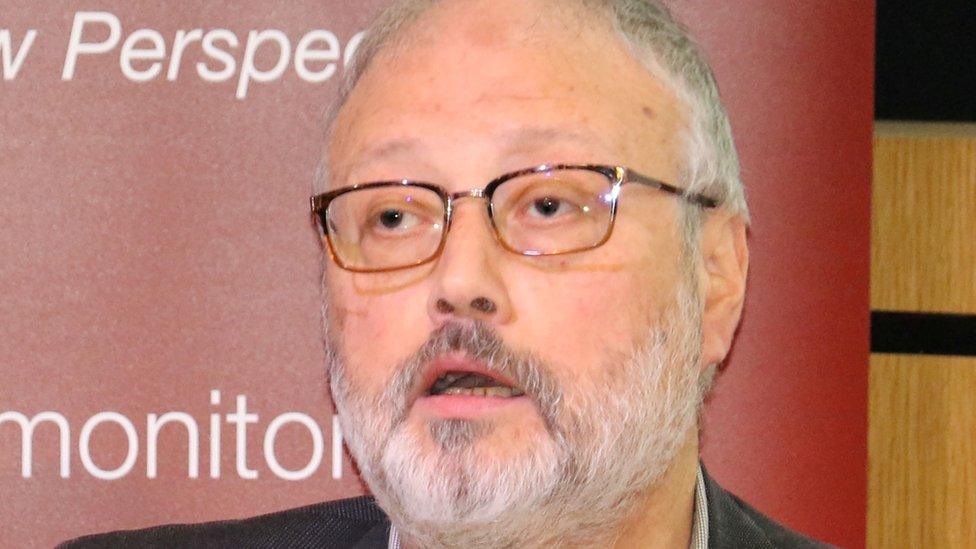
In April, a Turkish court ended the trial in absentia of 26 Saudi nationals over Jamal Khashoggi's murder
While Mr Erdogan did not directly accuse Prince Mohammed, he claimed he knew the order to kill Khashoggi had come "from the highest levels of the Saudi government".
US intelligence agencies concluded that the crown prince had approved an operation to capture or kill Khashoggi.
Saudi prosecutors blamed "rogue" agents and said the prince had had no knowledge of the operation.
A year after the killing, a Saudi court found five unnamed people guilty of directly participating in the killing and handed them death sentences that were later commuted to 20-year prison terms, while three others were jailed for seven to 10 years for covering up the crime.
Ms Cengiz condemned the decision to welcome Prince Mohammed to Turkey and vowed to continue her fight for justice.
"The political legitimacy he earns through the visits he makes to a different country every day doesn't change the fact that he is a murderer," she tweeted.
Allow X content?
This article contains content provided by X. We ask for your permission before anything is loaded, as they may be using cookies and other technologies. You may want to read X’s cookie policy, external and privacy policy, external before accepting. To view this content choose ‘accept and continue’.

Kemal Kilicdaroglu, leader of Turkey's main opposition Republican People's Party (CHP), also criticised the president for choosing to "embrace the man who ordered the killing" of Khashoggi.
In April, Mr Erdogan flew to Saudi Arabia and publicly embraced the prince, as their countries began what he called a "new period of co-operation".
That visit came three weeks after a court in Istanbul stopped the trial in absentia of 26 Saudi nationals, including two of the crown prince's aides, accused over the Khashoggi murder.
The judge said the case would be handed over to judicial authorities in Saudi Arabia, which had refused to extradite the suspects.
The move was denounced as a whitewash by human rights activists.
British barrister Helena Kennedy and UN special rapporteur Agnes Callamard describe the Jamal Khashoggi secret tapes
- Published14 June 2022
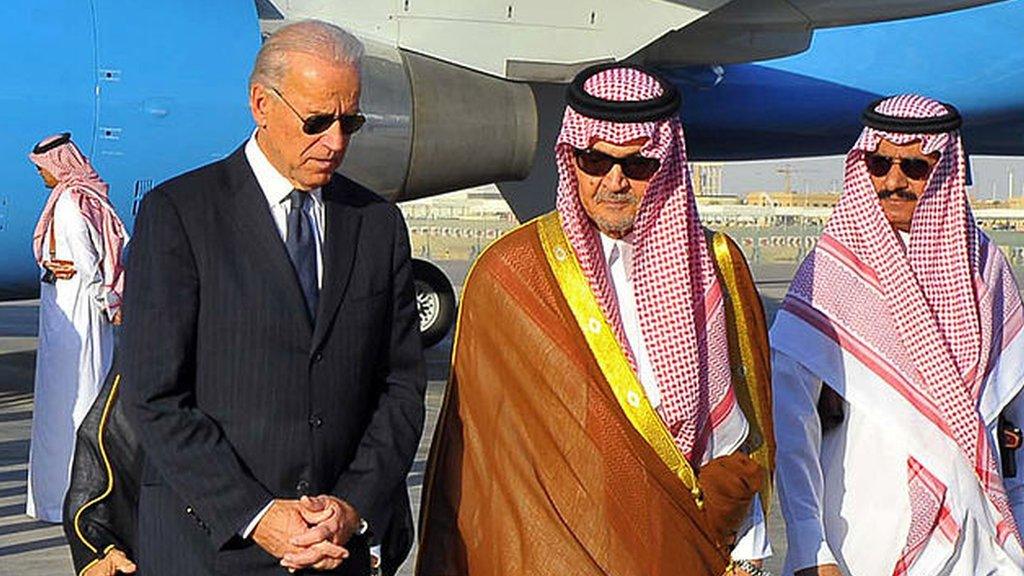
- Published7 April 2022
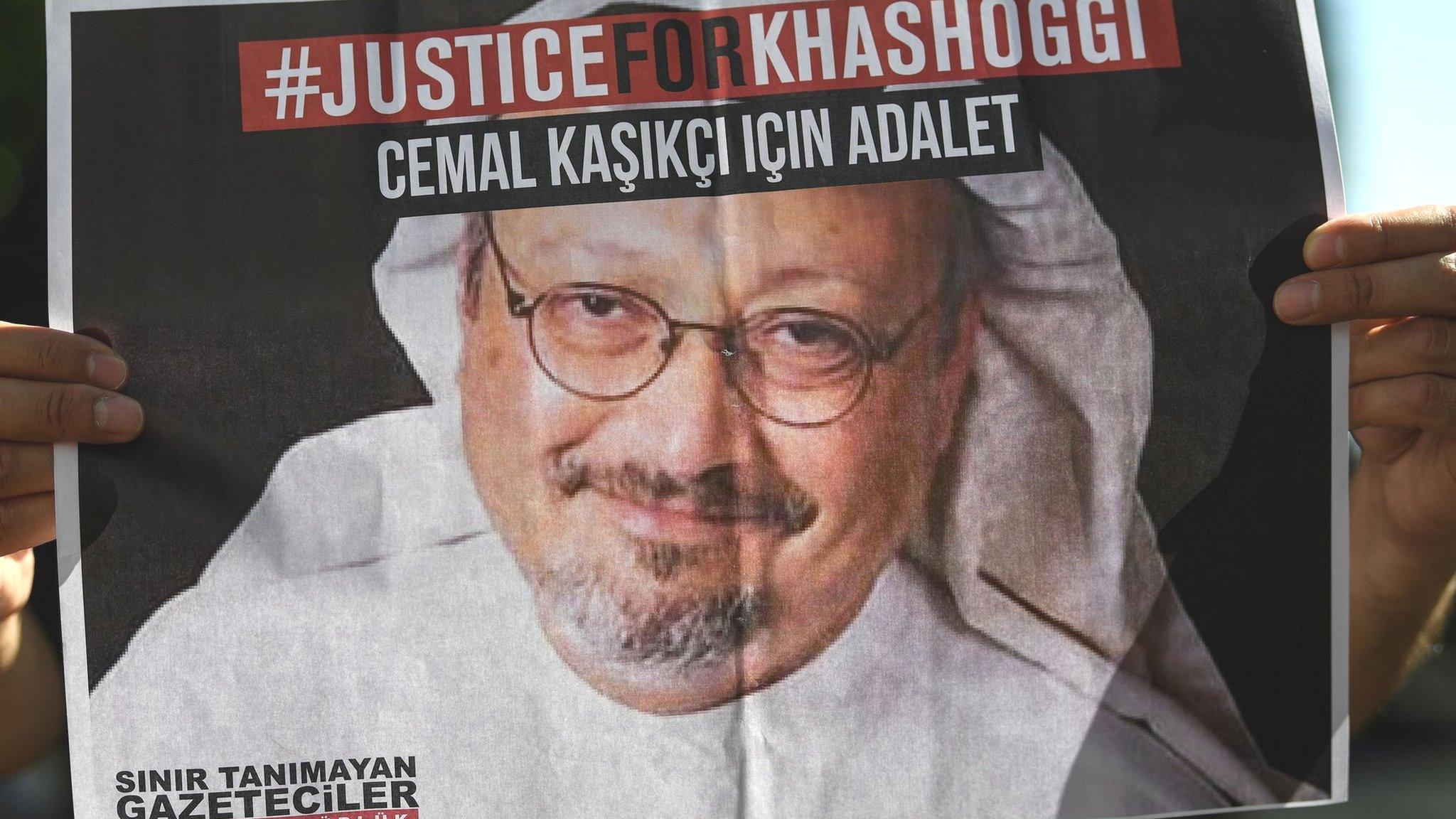
- Published24 February 2021
